STREAM Activity: X-citing Skeletons
Happy International Women's Day! Celebrate today by honoring Marie Curie.
Activity best for children age 2 and up
Every day something amazing happens by amazing people all over the world! Every single day, there is something that is invented or something to be celebrated. Today is International Women’s Day – a day to celebrate the amazing and important things that women have discovered and done throughout history! Today, we will be talking about Marie Curie, who is a very important person in the science world. She was born in Warsaw, Poland and was very smart as a little girl. However, she went through some hardships while becoming a scientist. She lived in Warsaw, where women were not allowed to go to school. This made it difficult for Marie to become a scientist, but that didn’t stop her. She never gave up, moved to France and studied hard. She also met her husband Pierre Curie and got married. After a few years, Marie discovered radium and polonium, which are two radioactive elements that can help take better x-rays. She and Pierre created the Theory of Radioactivity. It’s through these very important discoveries that we are able to take incredible x-rays of our bodies. When we go to the doctor, these x-rays help us see our bones more clearly and help us understand what is going on inside our body. Today, in honor of Marie Curie’s radioactive discovery, we are going to be making our very own X-citing Skeleton!
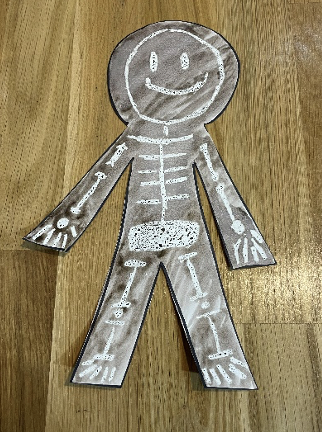
Materials:
White paper
White crayon or pastel
Black paint
Paint brush
Water
Scissors
Guiding Questions:
Look and feel your arms and hands. Do you feel bones that are small and bones that are big?
What foods and drinks can you think of that are healthy for your teeth and bones?
Directions
Step 1
On white paper, draw out an outline of a person. It can look any way you want and be any size you’d like!
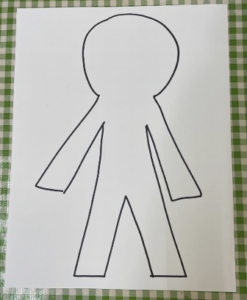
Step 2
Cut it out carefully.
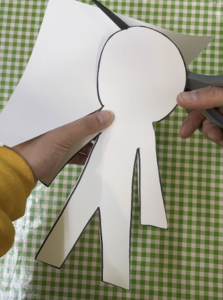
Step 3
With a white crayon or oil pastel, draw some bones and a face for your little person.
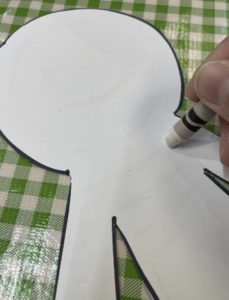
Step 4
Mix some black paint and water. Make sure the paint is watery and not too thick. With a paint brush, paint over your little person completely. The crayon/pastel should resist the water and leave them visible on the black-painted paper.
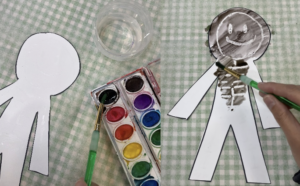
Step 5
Let your little person dry and he’s all finished!
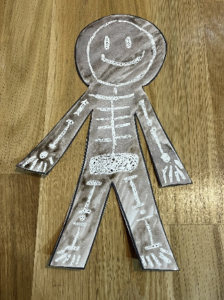
Grown Ups-Are you looking for more ways to extend your child’s learning? Check out these extension activities to build upon today’s STREAM activity!
Reading Connections
Little People Big Dreams: Marie Curie written by Isabel Sanchez Vegara
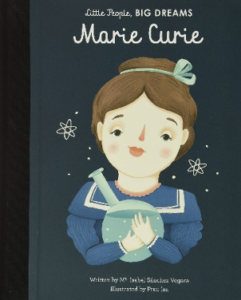
Science Connections
Crayons are made of wax, but wax doesn’t like water very much. When you paint over your white crayon drawing with black paint, see if you notice the white and black color resisting each other. This is a great example of chemistry!
Real-World Connections
This activity is to celebrate the important work of Marie Curie. Everyone in our life does something amazing and important! Think of someone you love and what they do. How can you let them know how awesome they are?
Share your x-citing skeleton with us on Instagram by tagging @sdcdm320!
Questions about this activity? Email education@sdcdm.org

